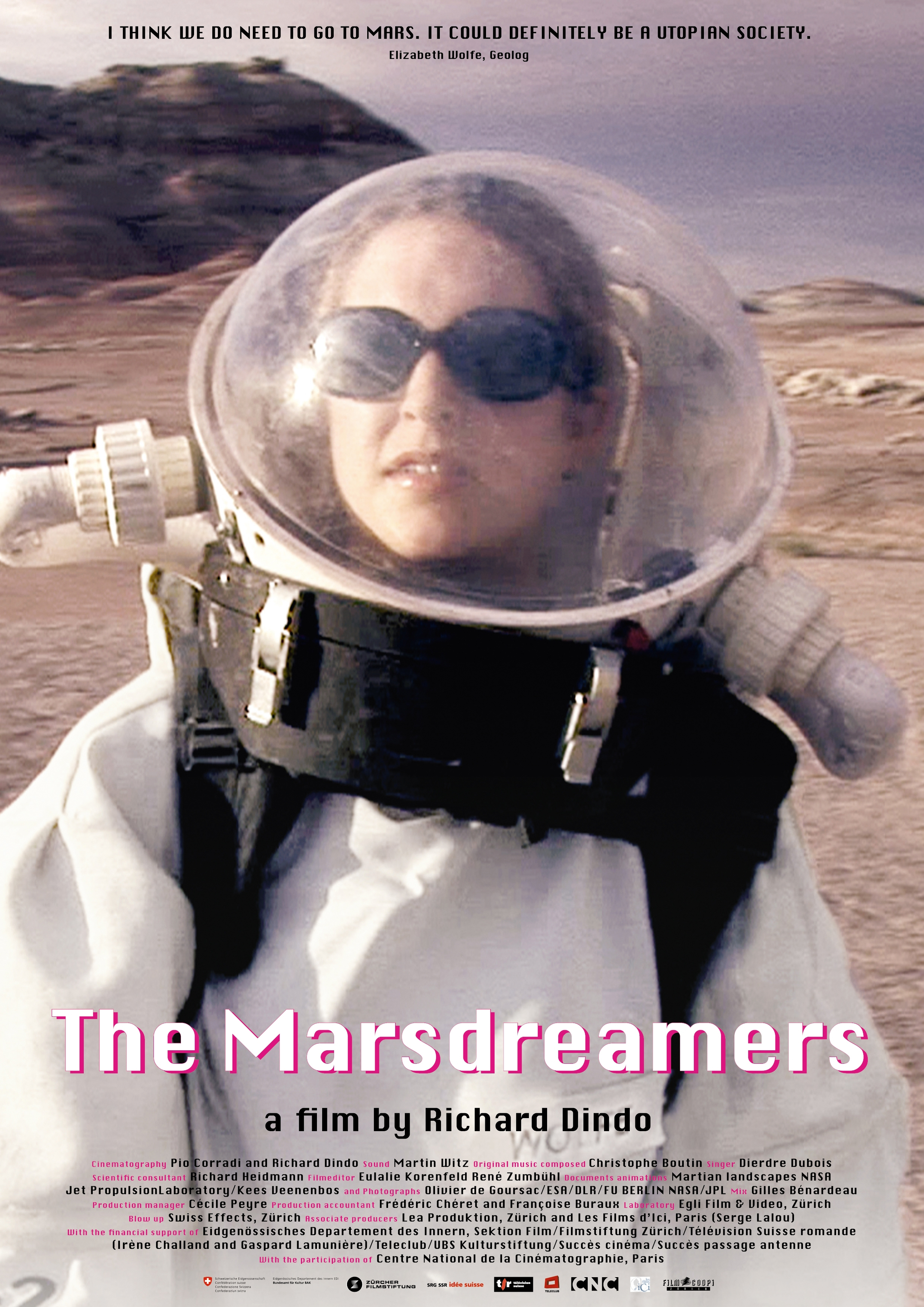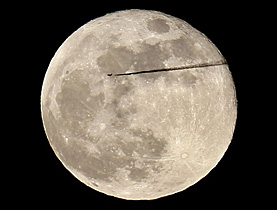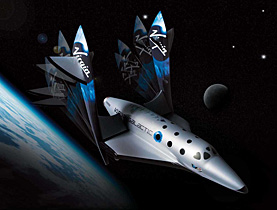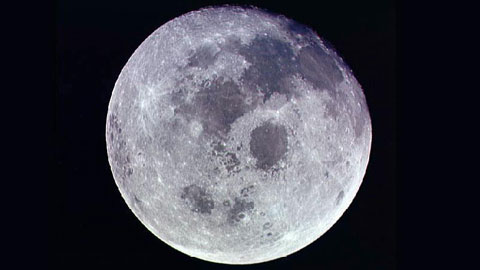A job relocation that’s out of this world

Would you go on a one-way trip to Mars? A Swiss documentary looks at people in the United States who would do so at the drop of a space helmet.
Richard Dindo’s The Marsdreamers opens in cinemas this week and looks at the reasons – and realistic chances – of achieving something that until recently has been limited to science fiction.
Zurich-born Dindo, who has been directing documentaries for 40 years, describes the film as “a declaration of love to Mother Earth”.
The Marsdreamers could certainly fall into that very 21st-century genre, the eco-doc – one of its main messages being “the Earth is beautiful, let’s keep it that way” – but it is neither as fact-heavy nor as alarming as international hits An Inconvenient Truth by Al Gore or Home by Yann Arthus-Bertrand.
Instead, Dindo headed to the US and starts the film following members of the Mars Society, who want to colonise the Red Planet, as they potter around the Mojave Desert in homemade spacesuits.
Between flights through computer-generated Martian landscapes, we also meet Nasa scientists, science fiction authors, students wanting to be remembered as the next Neil Armstrong and philosophical Native Americans – “the white people are restless, they’re tired of the Earth”.
Indeed there are several references to the Mayflower, the ship that carried the pilgrims across the Atlantic in 1620, and the American pioneers and frontiersmen.
Swiss pessimism
All of the interviewees fall somewhere between Utopians, who think the Earth is doomed and want to start again on Mars, and pragmatists, who believe that valuable information could be picked up on Mars to save Earth.
The film ends with poignant messages from the Marsdreamers to those they would leave behind.
The result is a personal, entertaining and ultimately thought-provoking essay on space colonisation that raises fundamental questions on the future of the Earth and humankind.
“Mars is rather a metaphor for a Utopian dream – and I like people who have a dream,” Dindo told swissinfo.ch at the premiere in Zurich.
“In Switzerland people don’t have a dream, and I think this is a big issue in this country. Most people here say these [Marsdreamers] are crazy. This is typical Swiss-German stupidity, because they don’t understand people who have a dream,” he said.
“Americans are much more optimistic, they are more adventurous and they want to see new landscapes. I like this American optimism, even if sometimes they are slightly blind. It gives you strength.”
Long-term plan
Swiss astronaut Claude Nicollier, who has flown on several Space Shuttle missions, was a special guest at the premiere.
“It’s a movie about dreaming, about the United States, because there’s a very dominant spirit there – more so than in Europe. It’s also a movie about the need, if we go to other celestial bodies like Mars, to still take good care of the Earth,” he told swissinfo.ch (listen to interview).
As for the health of the Mars programme, Nicollier said that despite some ups and downs it has always been a long-term plan in the US to go to Mars.
“The moon programme currently seems to be delayed for financial reasons – the US can’t do everything it plans to do with $18 billion (SFr19.3 billion) a year for Nasa – but the idea of going to Mars is still there.”
He also pointed out that until now it was always understood that if you were blasted into space, you’d also eventually come back. Now, with journeys to Mars taking six months and fuel for any return journey having to be found there, the ethics of one-way trips were being discussed for the first time.
Would Nicollier, a fit 65, volunteer? “Anytime! Like many people said in the movie, I’d be ready to go tomorrow. No doubt about it. Even on a one-way ticket.”
Benefit for humankind
For astrophysicist Barbara Burtscher, another guest at the premiere, it was all about the science.
“It would obviously be really exciting to stand on the surface of Mars and analyse samples of rock,” the 25-year-old physics teacher and president of Mars Society Switzerland told swissinfo.ch.
“And there’s also the goal of seeing whether people could actually live on Mars, so that if an asteroid crashed into Earth … at least there’d be a chance that humankind could survive.”
Last year Burtscher was selected to undergo training at the Mars Desert Research Station in Utah, a further step in her dream of becoming an astronaut. In December she spent two weeks living in Martian conditions.
And would she go to Mars – even if she knew she couldn’t come back?
“Yes, I’ve thought about that long and hard but I’d go. I’d like to do something that benefits humanity, so that we learn more about Mars and so that we could survive a catastrophe – that’s very important to me.”
In fact the only person swissinfo.ch could find who wasn’t in the least bit interested in going to Mars was Dindo.
“Never!” he said. “I’m claustrophobic!”
Thomas Stephens, swissinfo.ch
Mars is the fourth planet from the sun in the solar system.
Its distance from Earth varies greatly, but in 2003 the two planets were separated by a mere 55 million kilometres.
The good news:
The Martian day (24 hours 39 minutes) is very close to Earth’s.
Mars has a surface area that is 28.4% of Earth’s, only slightly less than the amount of dry land on Earth (29.2% of Earth’s surface).
Mars has an atmosphere. While very thin (about 0.7% of Earth’s atmosphere), it provides some protection from solar and cosmic radiation.
On the other hand:
The surface gravity on Mars is only a little more than one third that of Earth’s. It’s not known whether this level is high enough to prevent the health problems associated with weightlessness.
Mars is much colder than Earth, with an average surface temperature of -63 degrees Celsius and a low of -140.
There are no standing bodies of liquid water on the surface of Mars.
Richard Dindo was born in Zurich in 1944 as the grandson of Italian immigrants. After leaving school at 15, he began travelling and doing odd jobs.
He moved to Paris in 1966, watching several films a day at the Cinémathèque Française and reading hundreds of books formed the basis of his education as a self-taught filmmaker.
In 1970 he returned to Switzerland to make his first film, Repetition (Die Wiederholung). Since then, he has been based in Zurich and Paris and has made more than 20 documentaries and one fiction film, El Suizo (The Swiss).
Dindo’s films have been shown all over the world, including retrospectives in Germany, France, the US, Canada and Argentina.
An article published on August 17, 2010 in the Tages-Anzeiger newspaper relativized the nature of Barbara Burtscher’s dealings with Nasa. Her work at the Education Resource Centre in Huntsville, a popular science centre supported by the American space agency, had been wrongly described by many media outlets, including swissinfo.ch, as being a part of Nasa itself.
In a statement published on August 18, 2010 on her internet site, Barbara Burtscher maintained that she had always endeavoured to inform the media correctly and that she had never presented herself as a “Nasa astronaut”. She said that she was nevertheless sorry if her statements had given rise to a false impression. Burtscher added that she would continue to pursue her dream of one day becoming an astronaut.

In compliance with the JTI standards
More: SWI swissinfo.ch certified by the Journalism Trust Initiative





You can find an overview of ongoing debates with our journalists here. Please join us!
If you want to start a conversation about a topic raised in this article or want to report factual errors, email us at english@swissinfo.ch.